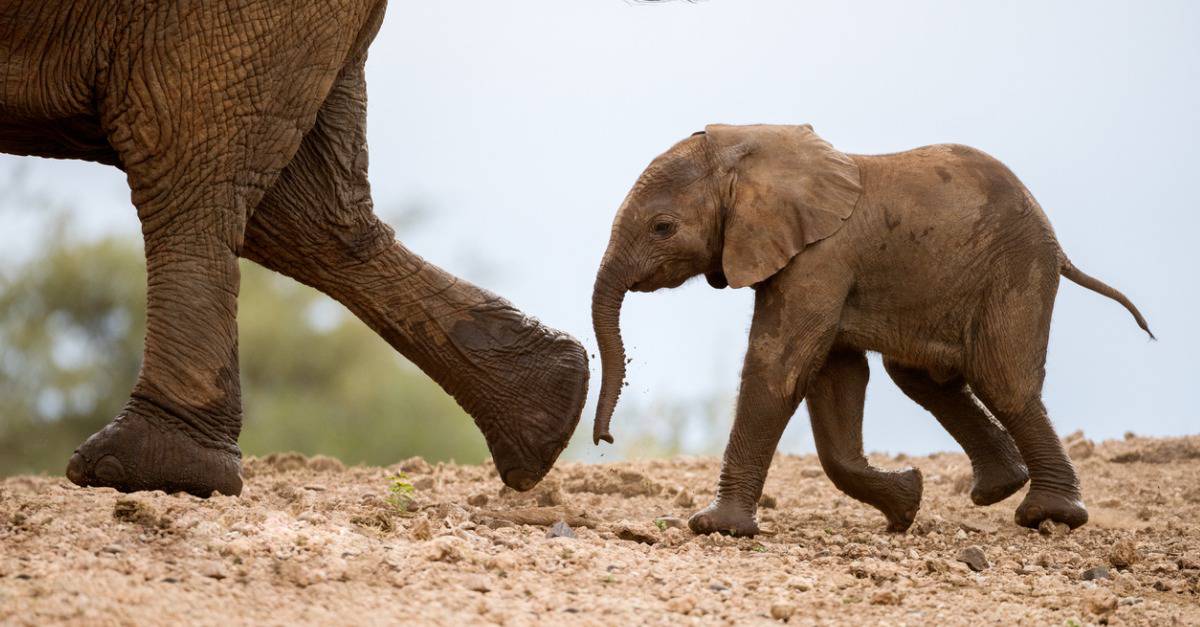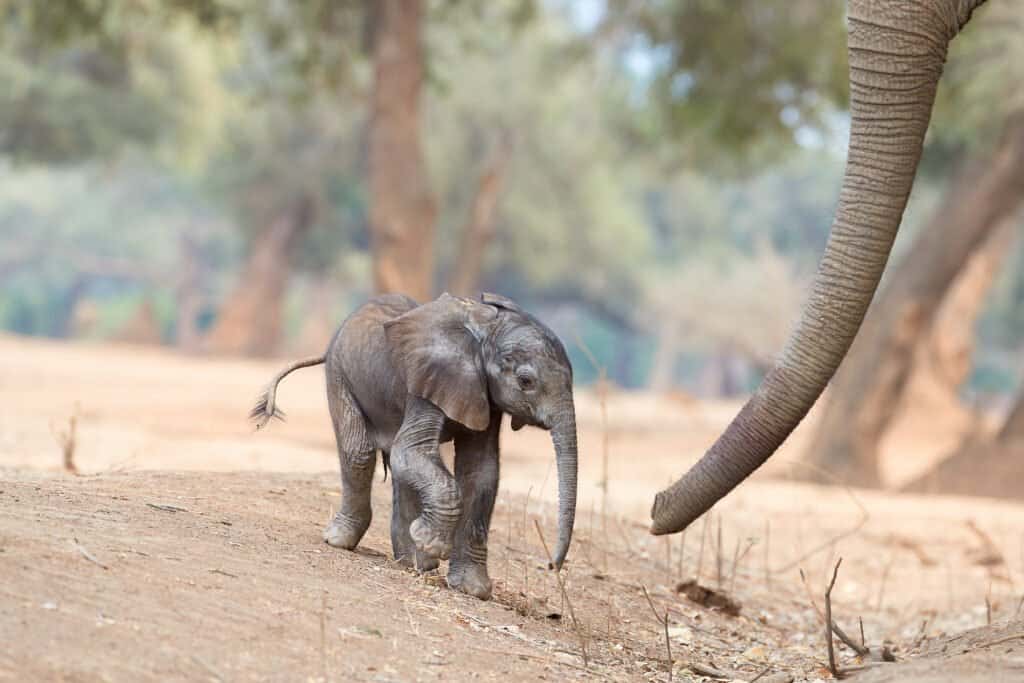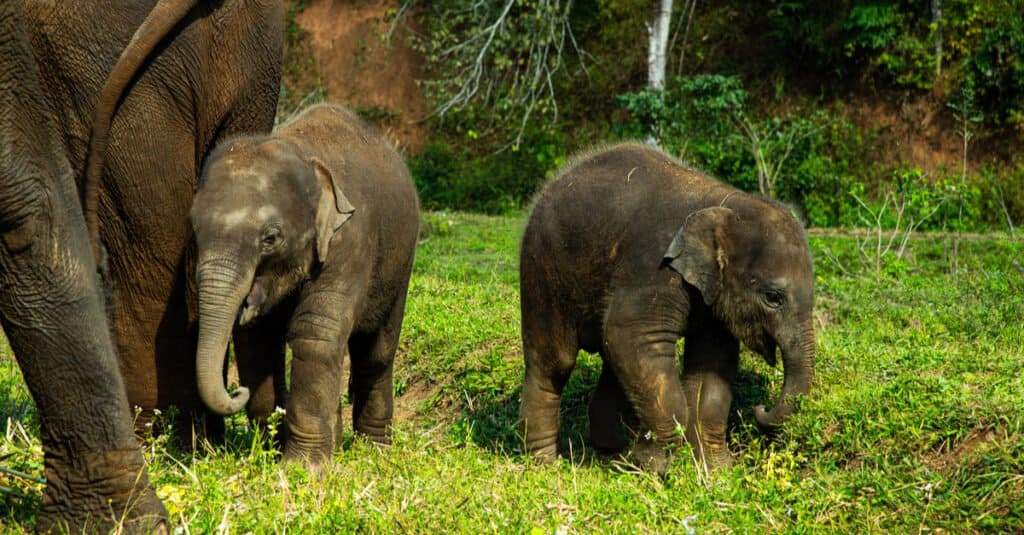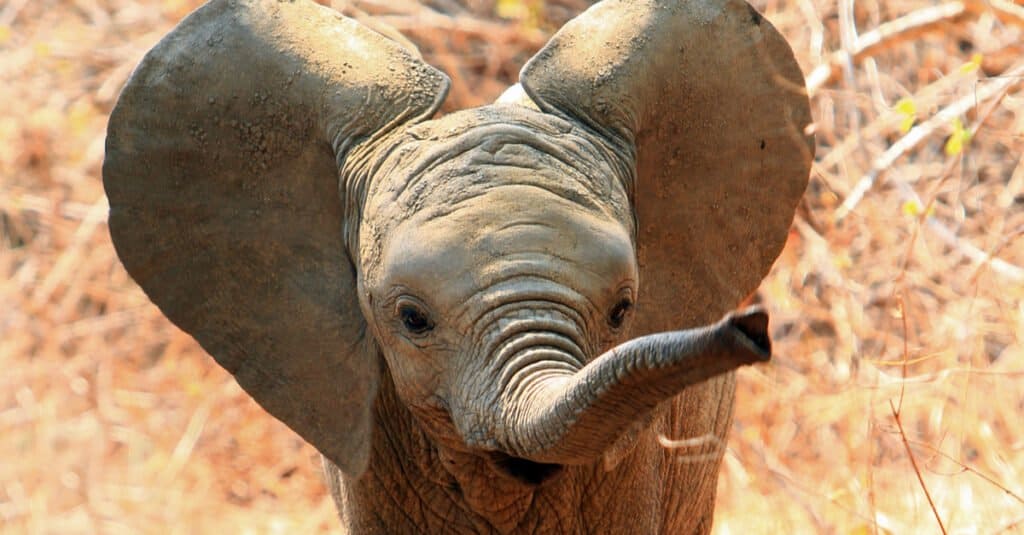Continue reading for our analysis...

In this incredible video, a baby elephant takes its first steps almost immediately after being born! According to the video, the baby elephant was born in South Luangwa National Park, Zambia. A massive African elephant gave birth, and other elephants crowded around the newborn to welcome him into the world. Only 20 minutes after the baby elephant’s birth, something amazing happened: he started taking its first steps!
At the beginning of the video, the baby elephant is alongside two other huge adult elephants. The young elephant shakily steps on the uneven ground, unsure of where to place his feet. It’s obvious that this is the elephant’s first time walking, as he moves his legs in an uncomfortable, awkward fashion.
As the baby elephant hesitantly looks at the rest of its herd, one of the adults encourages him to keep walking. The adult elephants and observing humans seem to be rooting for the baby’s success, quietly waiting in anticipation to see what happens next. The newborn takes his steps slowly at first but picks up the pace once he gains confidence. At one point, the baby elephant seems to stumble, but soon regains his balance and trots off into the distance.

Watch this inspiring video of a baby elephant taking its first steps only 20 minutes after being born!
©Martin Mecnarowski/Shutterstock.com
When Do Newborn Elephants Take Their First Steps?
Newborn elephants usually begin taking their first steps only minutes after they are born. When calves are born, they usually weigh around 246 pounds and record a height of about three feet. However, some newborn male African elephants may weigh up to 346 pounds at birth. The mother of the newborn, alongside other female elephants in the herd, typically helps a baby elephant stand after birth.
Then, the female elephants within the herd guide the newborn to nurse as soon as possible. Within around 48 hours after birth, a baby elephant will be able to walk on its own and join the remaining members of its herd. However, babies typically nurse for around six months after birth, and they must be taught what to eat, where to go, and how to move their trunks properly from adults.

Newborn elephants may weigh over 300 pounds at the time of birth.
©Jacktamrong/Shutterstock.com
Do Baby Elephants Have Tusks and Trunks?
Baby elephants have baby tusks and trunks at the time of birth. These baby tusks are called milk teeth, which fall off as the newborn develops. By the age of two, most elephants will have developed a new pair of adult tusks. Trunks, on the other hand, are present with the elephant from birth into adulthood. However, babies struggle to control their trunks properly until they are about one year old. In addition, a baby elephant may suck on its trunk by putting it in its mouth in the same way that human babies suck on their thumbs!

Adults in their herd must teach babies how to use their trunks, which they have trouble controlling.
©paula french/Shutterstock.com
Thank you for reading! Have some feedback for us? Contact the AZ Animals editorial team.







